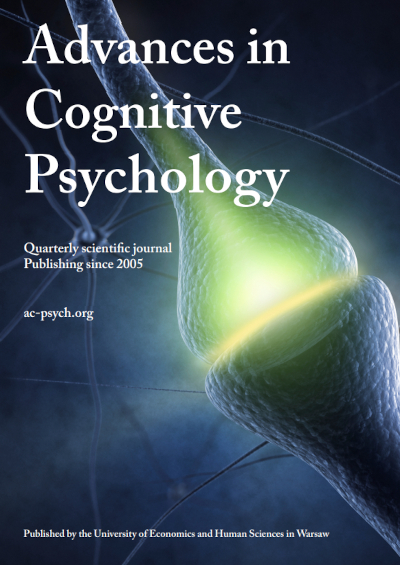Archive of all online content
-
Volume 21 Issue 4
pp. 309-500
(16 November 2025) -
Volume 21 Issue 3
pp. 212-308
(2 September 2025) -
Volume 21 Issue 2
pp. 120-211
(25 May 2025) -
Volume 21 Issue 1
pp. 1-93
(11 March 2025)
-
Volume 20 Issue 4
pp. 237-388
(20 November 2024) -
Volume 20 Issue 3
pp. 158-236
(19 August 2024) -
Volume 20 Issue 2
pp. 80-157
(24 June 2024) -
Volume 20 Issue 1
pp. 1-79
(1 March 2024)
-
Volume 19 Issue 4
pp. 1-105
(27 December 2023) -
Volume 19 Issue 3
pp. 211-333
(25 July 2023) -
Volume 19 Issue 2
pp. 111-200
(30 June 2023) -
Volume 19 Issue 1
pp. 1-110
(31 March 2023)
-
Volume 18 Issue 4
pp. 243-303
(31 December 2022) -
Volume 18 Issue 3
pp. 165-202
(30 September 2022) -
Volume 18 Issue 2
pp. 85-164
(30 June 2022) -
Volume 18 Issue 1
pp. 1-84
(31 March 2022)
-
Volume 17 Issue 4
pp. 250-291
(31 December 2021) -
Volume 17 Issue 3
pp. 193-249
(30 September 2021) -
Volume 17 Issue 2
pp. 99-192
(30 June 2021) -
Volume 17 Issue 1
pp. 1-98
(31 March 2021)
-
Volume 16 Issue 4
pp. 291-369
(31 December 2020) -
Volume 16 Issue 3
pp. 176-290
(30 September 2020) -
Volume 16 Issue 2
pp. 85-175
(30 June 2020) -
Volume 16 Issue 1
pp. 1-84
(31 March 2020)
-
Volume 15 Issue 4
pp. 236-317
(31 December 2019) -
Volume 15 Issue 3
pp. 169-235
(30 September 2019) -
Volume 15 Issue 2
pp. 75-168
(30 June 2019) -
Volume 15 Issue 1
pp. 1-74
(31 March 2019)
-
Volume 14 Issue 4
pp. 150-208
(31 December 2018) -
Volume 14 Issue 3
pp. 62-150
(30 September 2018) -
Volume 14 Issue 2
pp. 38-61
(30 June 2018) -
Volume 14 Issue 1
pp. 1-37
(31 March 2018)
-
Volume 13 Issue 4
pp. 267-322
(31 December 2017) -
Volume 13 Issue 3
pp. 190-266
(30 September 2017) -
Volume 13 Issue 2
pp. 121-189
(30 June 2017) -
Volume 13 Issue 1
pp. 1-120
(31 March 2017)
-
Volume 12 Issue 4 (special issue)
pp. 150-235
(31 December 2016) -
Volume 12 Issue 3
pp. 130-149
(30 September 2016) -
Volume 12 Issue 2
pp. 67-129
(30 June 2016) -
Volume 12 Issue 1
pp. 1-66
(31 March 2016)
-
Volume 11 Issue 4
pp. 118-135
(31 December 2015) -
Volume 11 Issue 3
pp. 64-117
(30 September 2015) -
Volume 11 Issue 2
pp. 31-63
(30 June 2015) -
Volume 11 Issue 1
pp. 1-30
(31 March 2015)
-
Volume 10 Issue 4
pp. 119-155
(31 December 2014) -
Volume 10 Issue 3
pp. 81-118
(30 September 2014) -
Volume 10 Issue 2
pp. 32-80
(30 June 2014) -
Volume 10 Issue 1
pp. 1-31
(27 February 2014)
-
Volume 9 Issue 4
pp. 156-223
(31 December 2013) -
Volume 9 Issue 3
pp. 112-155
(24 October 2013) -
Volume 9 Issue 2
pp. 53-111
(30 June 2013) -
Volume 9 Issue 1
pp. 1-52
(31 March 2013)
-
Volume 8 Issue 4
pp. 267-295
(31 December 2012) -
Volume 8 Issue 3
pp. 210-266
(27 September 2012) -
Volume 8 Issue 2
pp. 70-209
(28 June 2012) -
Volume 8 Issue 1
pp. 1-69
(29 March 2012)
-
Volume 7 Issue 2
pp. 55-156
(31 December 2011) -
Volume 7 Issue 1
pp. 1-54
(31 March 2011)
-
Volume 6 Issue 6
pp. 1-141
(31 December 2010)
-
Volume 5 Issue 5
pp. 1-134
(31 December 2009)
-
Volume 4 Issue 1
pp. 1-14
(31 March 2008)
-
Volume 3 Issue 4
pp. 419-465
(31 December 2007) -
Volume 3 Issue 3
pp. 363-417
(30 September 2007) -
Volume 3 Issue 1
pp. 1-361
(31 March 2007)
-
Volume 2 Issue 4
pp. 239-276
(31 December 2006) -
Volume 2 Issue 2
pp. 99-237
(30 June 2006) -
Volume 2 Issue 1
pp. 1-97
(31 March 2006)
-
Volume 1 Issue 1
pp. 1-16
()
Volume 11 Issue 3 (2015)
Embodied Information in Cognitive Tasks: Haptic Weight Sensations Affect Task Performance and Processing Style
Kai Kaspar, Alina Vennekötter

Kai Kaspar, Department of Psychology, University of Cologne, Richard-Strauss-Str. 2, 50931 Cologne.
E-mail: kkaspar@uni-koeln.de
Research in the field of embodied cognition showed that incidental weight sensations influence peoples’ judgments about a variety of issues and objects. Most studies found that heaviness compared to lightness increases the perception of importance, seriousness, and potency. In two experiments, we broadened this scope by investigating the impact of weight sensations on cognitive performance. In Experiment 1, we found that the performance in an anagram task was reduced when participants held a heavy versus a light clipboard in their hands. Reduced performance was accompanied by an increase in the perceived effort. In Experiment 2, a heavy clipboard elicited a specific response heuristic in a two-alternative forced-choice task. Participants showed a significant right side bias when holding a heavy clipboard in their hands. After the task, participants in the heavy clipboard condition reported to be more frustrated than participants in the light clipboard condition. In both experiments, we did not find evidence for mediated effects that had been proposed by previous literature. Overall, the results indicate that weight effects go beyond judgment formation and highlight new avenues for future research.
Keywords: embodied cognition, weight sensations, cognitive task, task performance, response heuristicThe Influence of Motor Imagery on Postural Sway: Differential Effects of Type of Body Movement and Person Perspective
John F. Stins, Sander L. Koole, Peter J. Beek

John F. Stins, MOVE Research Institute Amsterdam, Department of Human Movement Sciences, VU University Amsterdam, van der Boechorststraat 9, 1081 BT, Amsterdam, The Netherlands.
E-mail: j.f.stins@vu.nl
The present study examined the differential effects of kinesthetic imagery (first person perspective) and visual imagery (third person perspective) on postural sway during quiet standing. Based on an embodied cognition perspective, the authors predicted that kinesthetic imagery would lead to activations in movement-relevant motor systems to a greater degree than visual imagery. This prediction was tested among 30 participants who imagined various motor activities from different visual perspectives while standing on a strain gauge plate. The results showed that kinesthetic imagery of lower body movements, but not of upper body movements, had clear effects on postural parameters (sway path length and frequency contents of sway). Visual imagery, in contrast, had no reliable effects on postural activity. We also found that postural effects were not affected by the vividness of imagery. The results suggest that during kinesthetic motor imagery participants partially simulated (re-activated) the imagined movements, leading to unintentional postural adjustments. These findings are consistent with an embodied cognition perspective on motor imagery.
Keywords: motor imagery, postural control, embodied cognitionMan, You Might Look Like a Woman— If a Child Is Next to You
Aenne A. Brielmann, Justin Gaetano, Margarita Stolarova

Margarita Stolarova, Department of Psychology, University of Konstanz, Universitaetsstrasse 10, 78464 Konstanz, Germany.
E-mail: margarita.stolarova@uni-konstanz.de
Gender categorization seems prone to a pervasive bias: Persons about whom null or ambiguous gender information is available are more often considered male than female. Our study assessed whether such a male-bias is present in non-binary choice tasks and whether it can be altered by social contextual information. Participants were asked to report their perception of an adult figure’s gender in three context conditions: (1) alone, (2) passively besides a child, or (3) actively helping a child (n = 10 pictures each). The response options male, female and I don’t know were provided. As a result, participants attributed male gender to most figures and rarely used the I don’t know option in all conditions, but were more likely to attribute female gender to the same adult figure if it was shown with a child. If such social contextual information was provided in the first rather than the second block of the experiment, subsequent female gender attributions increased for adult figures shown alone. Additionally, female gender attributions for actively helping relative to passive adults were made more often. Thus, we provide strong evidence that gender categorization can be altered by social context even if the subject of gender categorization remains identical.
Keywords: male-bias, gender categorization, social perception, sex, social contextThe Prediction of Students’ Academic Performance With Fluid Intelligence in Giving Special Consideration to the Contribution of Learning
Xuezhu Ren, Karl Schweizer, Tengfei Wang, Fen Xu

Fen Xu, Department of Psychology, Zhejiang SciTech University, Hangzhou 310018, China.
E-mail: fenxu@zstu.edu.cn
First author's E-mail: renxz@hust.edu.cn
The present study provides a new account of how fluid intelligence influences academic performance. In this account a complex learning component of fluid intelligence tests is proposed to play a major role in predicting academic performance. A sample of 2, 277 secondary school students completed two reasoning tests that were assumed to represent fluid intelligence and standardized math and verbal tests assessing academic performance. The fluid intelligence data were decomposed into a learning component that was associated with the position effect of intelligence items and a constant component that was independent of the position effect. Results showed that the learning component contributed significantly more to the prediction of math and verbal performance than the constant component. The link from the learning component to math performance was especially strong. These results indicated that fluid intelligence, which has so far been considered as homogeneous, could be decomposed in such a way that the resulting components showed different properties and contributed differently to the prediction of academic performance. Furthermore, the results were in line with the expectation that learning was a predictor of performance in school.
Keywords: individual differences fluid intelligence, complex learning, academic performanceExecutive Resources and Item-Context Binding: Exploring the Influence of Concurrent Inhibition, Updating, and Shifting Tasks on Context Memory
Marek Nieznański, Michał Obidziński, Emilia Zyskowska, Daria Niedziałkowska

Marek Nieznański, Institute of Psychology, UKSW; ul. Wóycickiego 1/3 bud. 14; 01-938 Warsaw, Poland.
E-mail: mnieznanski@wp.pl
Previous research has demonstrated that context memory performance decreases as a result of cognitive load. However, the role of specific executive resources availability has not been specified yet. In a dual-task experiment, participants performed three kinds of concurrent task engaging: inhibition, updating, or shifting operations. In comparison with a no-load single-task condition, a significant decrease in item and context memory was observed, regardless of the kind of executive task. When executive load conditions were compared with non-specific cognitive load conditions, a significant interference effect was observed in the case of the inhibition task. The inhibition process appears to be an aspect of executive control, which relies on the same resource as item-context binding does, especially when binding refers to associations retrieved from long-term memory.
Keywords: context memory, executive resources, inhibition, updating, shifting


